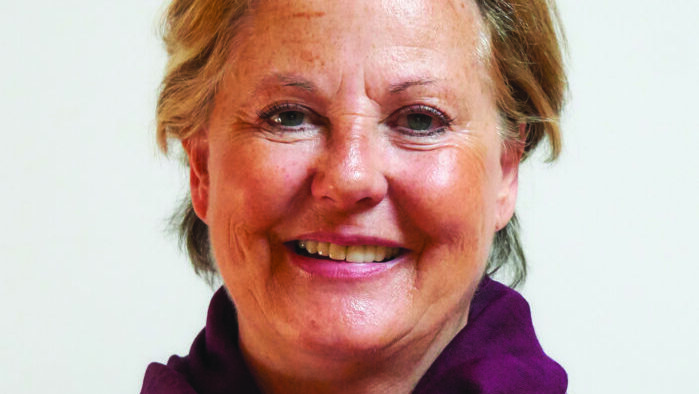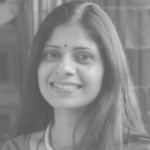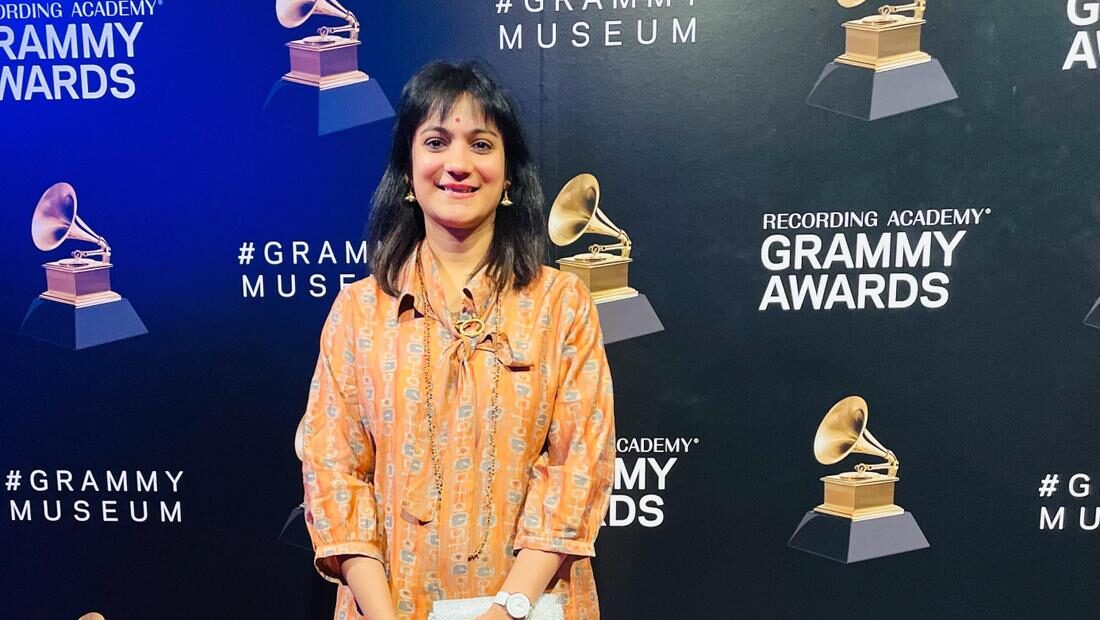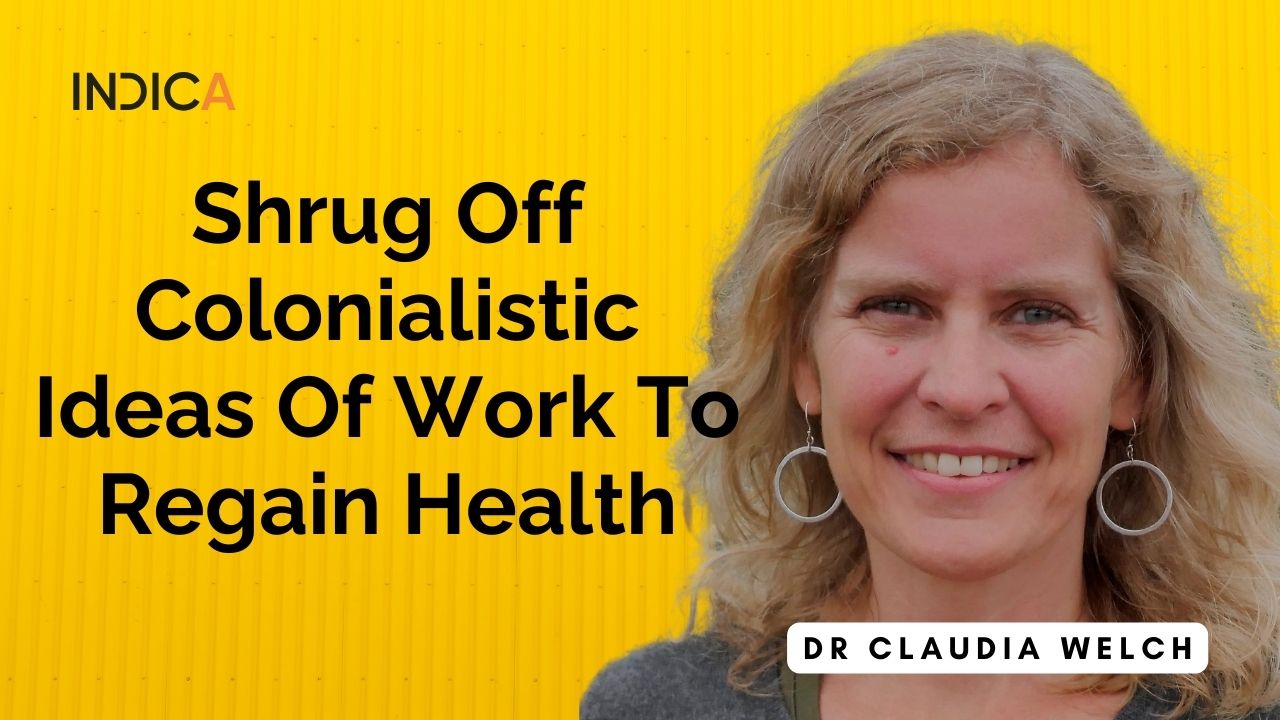A female welder from Boston Mass. with Sjogren's Syndrome, on Prednisolone to the point of blindness was cured using Ayurvedic protocols. A patient with Ankylosing Spondylitis having a 4-week Panchakarma every year is able to lead a normal life and is asymptomatic. Angela Hope-Murray narrates these instances as some of Ayurveda's success in exceptional cases she has seen. Additionally, she says, "On a personal note 40 years of regular meditation has completely changed my life."
Angela Hope-Murray has trained extensively in all aspects of complementary medicine. Angela began her work life in the NHS before moving to Boston, Massachusetts and gaining a Master’s degree in nutrition and health counselling. Her interest in Ayurveda began in 1984, when she was an intern at the Lemuel Shattuck Hospital in Boston Massachusetts.
Angela says that it was when famous Indian Ayurveda Vaidya Dr Vasant Lad gave a lecture in one of their occasional lunchtime meetings on Ayurveda that she knew that "what I had studied in medicine to that point was incomplete and I must learn Ayurveda. Co-incidentally I was initiated into the Advaita Vedanta tradition the same month."
Angela has visited India several times and lectured extensively on Ayurveda medicine. "My experience of Ayurveda in natural settings in India is that it has always been enhanced. This is because Ayurveda espouses the fact that 'we are nature' with this in mind all 5 elements and their objects are lovingly fulfilled in the trickle of a stream, the aroma of a plant, the clarity of the sky, the brush on the skin of the breeze and the support of the earth. All these elements will always nourish my heart and give a feeling of well-being, Rishikesh and lake Mulchi gave me this experience."
Asked if Ayurveda should be put in the same bracket as other complimentary medicines, when Ayurveda is in fact the science of life itself, Angela says, "Unfortunately that has been the case, although it is head and shoulders above all other complementary practices it is a complete medical paradigm like Allopathy. BAMs trained physicians also have the same length of training as their counterparts in western medicine."
Angela has travelled extensively in India and lectures worldwide on Ayurvedic medicine. She is the author of two books: Healing with Ayurveda, Ayurveda for Dummies and Outline of Musculoskeletal medicine in Ayurveda. Her background in osteopathy, podiatry Nutrition, Spagyric medicine and Marmapuncture (Ayurvedic Acupuncture) and specialisation in musculoskeletal conditions and nutrition for over 40 years, led her to going deeper into her area of special interest - "psychosomatics and the effect of the emotions on bodily health works to bring balance back into one's life."

The body-mind complex has intrigued the medical community in the last few decades. Says Angela, "Initially the effect of the mind on the body of an individual says much about their "attitude" e.g depressed, proud, etc. So bodywork is essential e.g LBP is often connected to feeling unsupported, shoulder pain can be a sense of taking on too much responsibility. Ayurveda tells us that all 6 tastes have emotional analogs so anger, for instance, is an excess of pungency, especially in the liver. Psyche and Soma are indivisible and at either point of entry, one will affect the other. Food, herbs, counseling, mantra and yoga all have their effect on the nadis."
Today as we battle a raging pandemic, Ayurveda stands at an important modern juncture in her own long history. "If we were living a fully Vedic lifestyle, this (the pandemic) probably would not happened in the first place but it has been many centuries since this has happened. Throughout the last few thousand years, zoomorphic diseases have arisen because of humanity's close contact with animals. When this occurs we have little resistance to them. Undoubtedly a good diet and lifestyle will always enhance our immune responses. Charaka says that mismanagement of the land is one of the leading causes of epidemics," says Angela.
Angela says she sees food as the most fundamental building block of our bodies. "Diet and digestive capacity are vital for the maintenance of our bodies. It is both nourishment and medicine." In her book Healing in Ayurveda, her approach is to think of the "GI tract as the engine room of our bodies so a chapter is devoted to Stoking the Fire. Advice is given on careful adherence to doshic requirements for each constitution with particular emphasis on good food combinations. Herbs are recommended to complement digestion and optimize its functioning."
Can a lateral entry into Ayurveda, maybe by reading books such as her book Ayurveda for Dunmies...can one expect a turn around in health even at a late stage in one's life? "The answer to this question is an unequivocal yes. Very real changes can be made until we draw our last breath. Using that as an example the vital capacity of our lungs begins to lose their patency from the age of 35 years, pranayama can reverse that process, I experienced this on a personal level."
Modern day nutritionists focus on calories and other physical parameters, so how does she see an Ayurvedic diet? "The difference as I see is that Ayurveda is related to the understanding of rasa which is the fundamental principle of food knowledge in Ayurveda. Taste has emotional analogs in Ayurveda, for example, the sweet taste is connected to love, it is the flavor of our mother's milk that's why we become addicted to it. Most of today's food is tasteless and is very dependent on strong flavourings such as salt. Ayurveda feels that all 6 tastes need to be present in our food otherwise we will tend to overeat to find satisfaction. Foods in Ayurveda are recommended for different constitutions and what may be suitable for one individual may not be appropriate for another. Western dietetics is very reductionist in their approach and has none of the understanding of potency, post-digestive effects, and special effects of food on our tissues."
Most nutritionists also recommend dietary supplements and her book Outline of Musculoskeletal medicine in Ayurveda, explains why a judicious combination of approaches may be required. "Poor soils demand supplementation of minerals and Vit D is advisable when people are not exposed to sunlight on a regular basis. Vit B12 is necessary for many vegetarians in the West."





